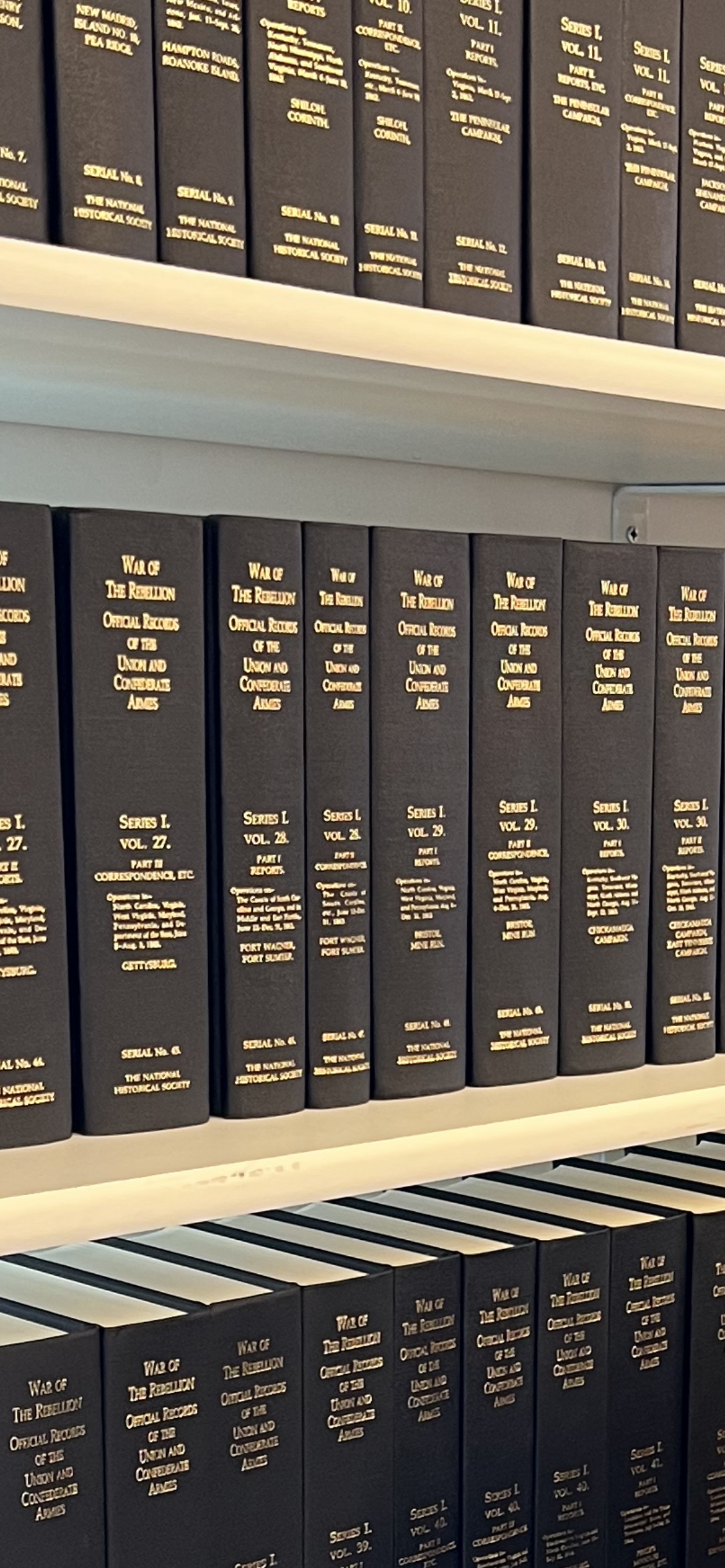Three Reasons to Study Civil War Military History
The OR - in my classroom library.
If you’ve ever stopped to think about military history as its own thing…and you assume that the study of military history is limited to the study of generals, battlefields, and stuff exploding, I would just like to point out that such study is not just “drums and bugles” as some have dismissively described it. There is so much more to the study of the military. For those who insist otherwise and look to topics away from the battlefield to best understand the Civil War, might I recommend reconsidering. The study of the military offers windows into all sorts of things, not just the conventional military topics. In fact, I would argue that military history intersects with any number of things: social, economic, and even religious history. A war was going on - and the military affected people’s live in any number of ways. Go figure. Here are three examples of things you could learn more about from the study of the military during the Civil War:
The soldiers in the Union and Confederate Armies were a reflection of society. Especially in a war between two democratic republics, citizen soldiers fought this war, and they often enlisted as communities. What this means is that we can learn a ton about community dynamics from studying their interactions within the ranks and by reading their letters home. I do an exercise in class where I have my students read a single letter penned by a North Carolina private to his father back home. You can read this entirely typical letter HERE. The soldiers discusses illnesses, anxieties, even finances…all of which would have been interesting news back home, likely shared with other members of the community, as he mentions his neighbors by name. Discussion of issues and events would surely have had implications on the community scale - and probably in the ranks too.
Military analyses offers glimpses into the lives and opportunities of marginalized people. After Lincoln made a proclamation allowing for the enlistment of black soldiers in the Union cause, for example, an opportunity arose for military service, and as Frederick Douglass argued, "Once let the black man get upon his person the brass letter, U.S., let him get an eagle on his button, and a musket on his shoulder and bullets in his pocket, there is no power on earth that can deny that he has earned the right to citizenship." Some black men jumped at the chance to prove themselves and secure citizenship rights, others didn’t. Brian Taylor’s Fighting for Citizenship: Black Northerners and the Debate over Military Service in the Civil War digs deeper into the issues surround black enlistment. Reasons in either case reveal a lot about black agency and perceptions of their place in American society in the 19th century. Military history likewise reveals much about circumstances behind the lines, such as the history of black families on the home front and what the enlistment of black men meant in marginalized communities. Holly Pinheiro’s The Families’ Civil War: Black Soldiers and the Fight for Racial Justice does a nice job taking on these issues.
The study of the military opens the doors for new niche disciplines. Environmental history comes immediately to mind. Imagine how we might consider the environmental effects of of such a conflagration as the Civil War. The war saw large contingents of men, sometimes numbering in excess of 100,000, along with their horses and mules, showing up to encamp in Maryland or Northern Virginia or one of the other highly trafficked areas in the conflict. They cut down all the trees, burned up all the fence rails, ate all the livestock, drank all the wells dry, relieved themselves in the water supply (think dysenteric stools…), and then moved on….perhaps to give battle and leave behind buried (or not) thousands of dead men and horses. Two recent books cover this topic beautifully: Judson Browning’s and Timothy Silver’s An Environmental History of the Civil War, and Steven Cowie’s, When Hell Came to Sharpsburg: The Battle of Antietam and Its Impact on the Civilians Who Called It Home. The environmental impact of the war is something that few engage, but it stands to reason that it must have been severe - with many communities taking decades to recover.
So there’s three…and I can think of many more reasons to study the military history of the Civil War. I would love your thoughts on this in the comments. And hey - if you come up with a good one that I have yet to consider, I’ll put it in my class as a point to consider with full credit to you, of course). Hope to hear from you.
With compliments,
Keith
